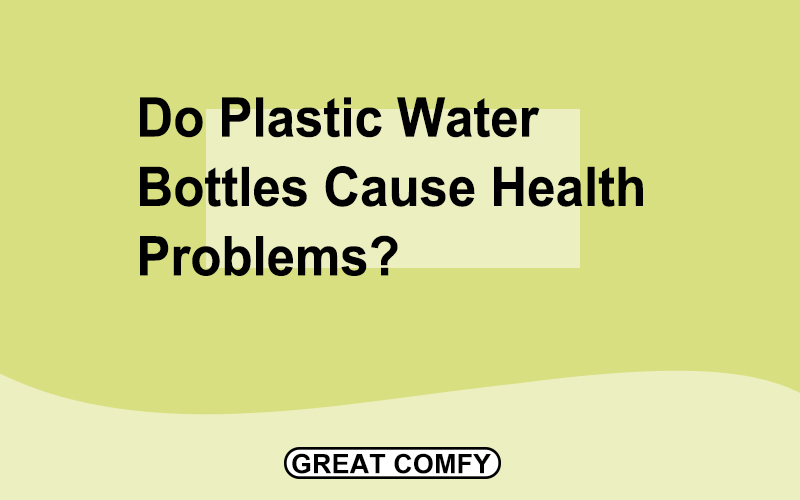The surge in the use of plastic water bottles in recent decades has not only led to significant environmental concerns but has also sparked a health debate that is increasingly hard to ignore. Do Plastic Water Bottles Cause Health Problems?
Do Plastic Water Bottles Cause Health Problems?
You might have heard some concerns about plastic water bottles and their potential impacts on our health. So, let’s dive right into it without further ado.
Plastic water bottles are usually made from a material known as polyethylene terephthalate (PET).
Now, PET is generally regarded as safe by many health authorities, including the Food and Drug Administration in the United States. But the question of safety isn’t that simple when it comes to our continuous and long-term use of these bottles.
One of the major concerns is about a chemical called Bisphenol A (BPA), often found in plastics. Several studies have linked BPA to a variety of health problems, such as heart disease, brain development issues in children, and even certain types of cancer.
It’s important to note that most manufacturers have moved away from using BPA in water bottles, but not all.
Phthalates, which are often used to make plastics flexible, are also another byproduct of plastics that can be bad.
They can leach into the water, especially when the bottle is exposed to heat or sits around for a long time. Studies have suggested that exposure to high levels of phthalates may lead to hormonal imbalances, which could cause a range of health issues.
And it’s not just about the chemicals. Plastic bottles can harbor bacteria if not cleaned properly, due to the difficulty in washing them.
In this case, reusing disposable plastic bottles, which are not designed for multiple uses, can potentially introduce harmful bacteria into your drink.
So, what’s the verdict here?
While it’s clear that not every plastic bottle will cause health problems, the potential risks linked with the continuous and prolonged use of them are worth considering.
Of course, the discussion is ongoing and more research is needed.
Are there other Plastics Water bottles that are more safe?
You may have noticed a little number inside the recycling symbol, typically found on the bottom of most plastic water bottles.
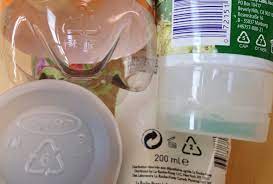
That number is part of the Resin Identification Code and can tell you a lot about the type of plastic you’re dealing with.
Bottles marked with a ¡°1¡± are made from PET, which we discussed in our previous section. While generally considered safe for single use, it’s not ideal for reuse due to the potential leaching of chemicals and bacterial growth.
So, what about bottles marked with a ¡°2¡±, ¡°4¡±, or ¡°5¡±?
These are made from high-density polyethylene (HDPE), low-density polyethylene (LDPE), and polypropylene (PP) respectively. These types of plastic are often regarded as safer alternatives because they do not contain BPA or phthalates.
Polypropylene (PP), marked as ¡°5¡±, is particularly interesting.
It’s robust, resistant to heat, and does not break down easily into harmful compounds. You’ll often find this plastic in more durable, reusable water bottles designed for long-term use.
What are a Better Alternatives to Plastic Water Bottles in general?
Without much ado, let’s get into this list¡
Stainless steel Water Bottles
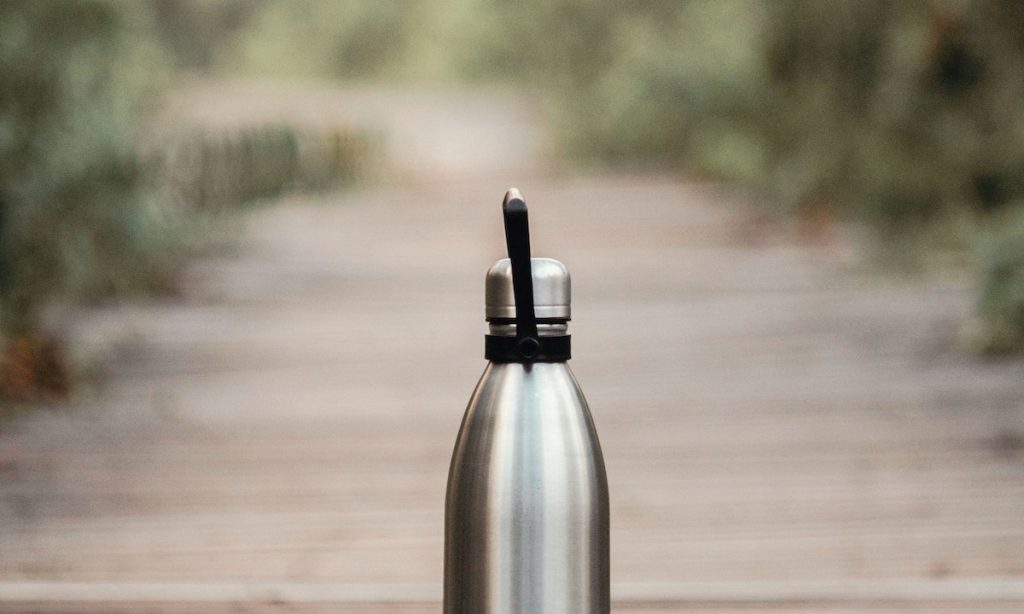
If you’re looking for a durable, long-lasting, and safe alternative, this one could be a real winner. Stainless steel doesn’t leach chemicals, is easy to clean, and can handle both hot and cold liquids.
And let’s not forget, it’s also highly durable. Drop it, and you’ll probably end up with a small dent, and not a disastrous shred of broken material, as you may have with glass or plastic (depending on the make).
Glass Water Bottles
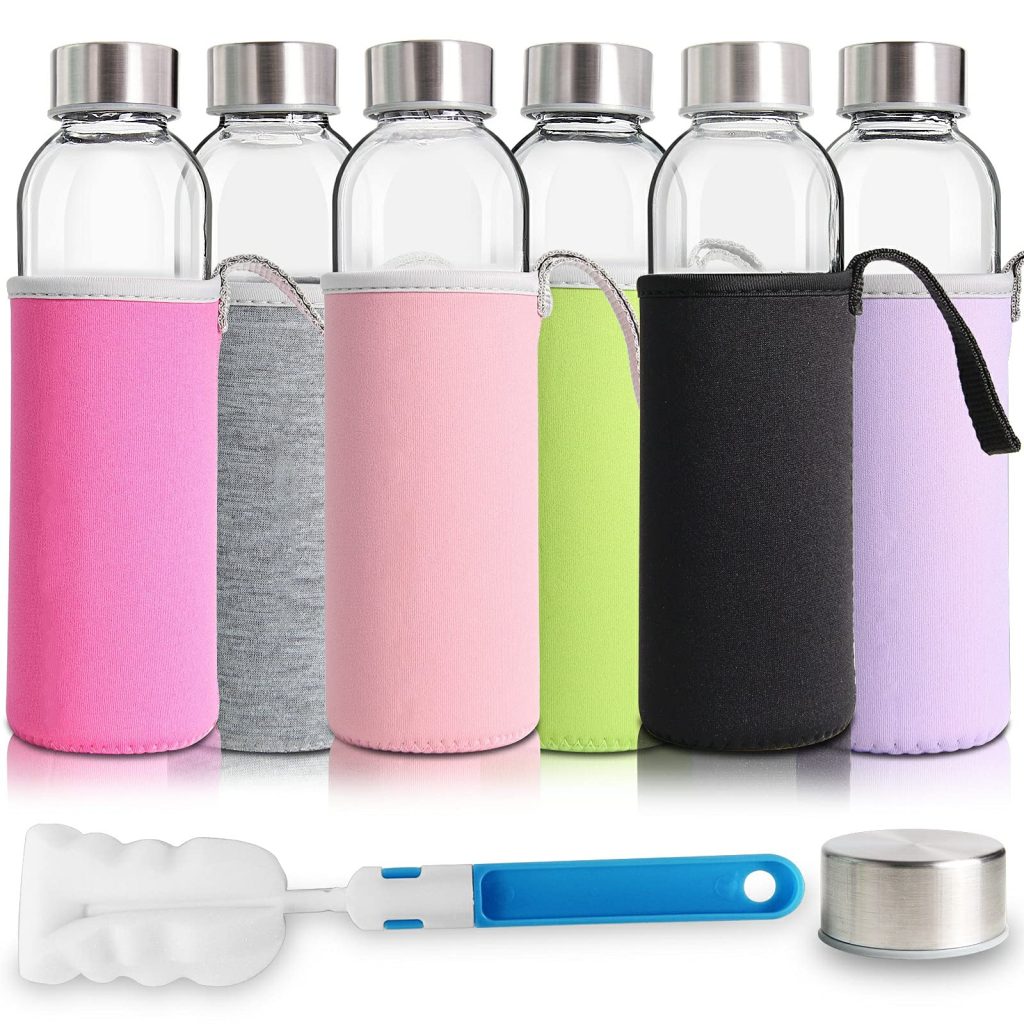
Next up is the glass water bottle. There’s something elegant about glass, isn’t there? Glass bottles don’t absorb tastes or odors, ensuring your water stays fresh and clean-tasting.
They’re also generally safe from chemical leaching. However, they do come with a downside ¨C they’re breakable. But thanks to protective silicone sleeves, this problem can be somewhat mitigated.
Ceramic Water Bottles
Ceramic water bottles are another option to explore. Like glass, ceramic won’t absorb residual tastes or odors.
They also boast of the added perk of being insulating, keeping your beverages hot or cold for longer.
Biodegradable Water Bottles
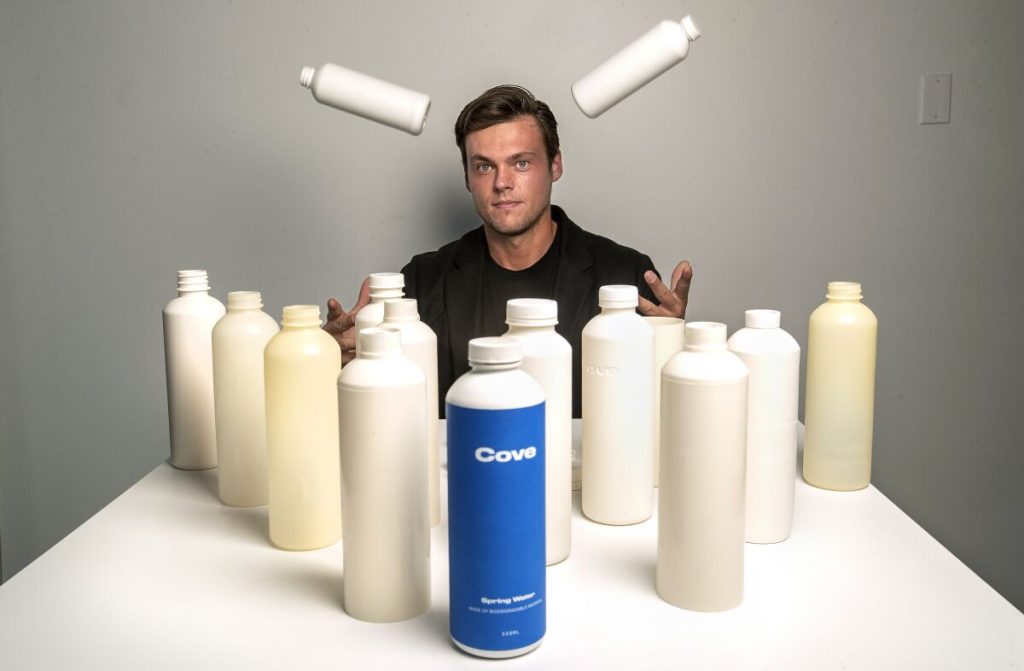
Lastly, but by no means least, there are biodegradable water bottles. Made from plant-based materials, these are a newer entry in the market and an exciting development in eco-friendly hydration.
While they may not be as durable as stainless steel or glass, they’re an innovative step towards sustainable alternatives.
Each of these alternatives has its pros and cons, but they all share a common benefit: they can help reduce our reliance on single-use plastics. That’s a win for our health and a massive victory for our planet. And remember, staying hydrated is crucial. So, whatever your choice of water bottle may be, make sure to fill it up and drink throughout the day. Stay healthy, folks, and let’s continue making choices that benefit us and our beautiful planet!
Conclusion
The answer to the question in general is not a simple yes or no. While not every plastic water bottle will lead to health issues, the potential risks associated with prolonged and repeated use are worth considering. Our health matters, so let’s make informed choices about the containers we use for our daily hydration.

